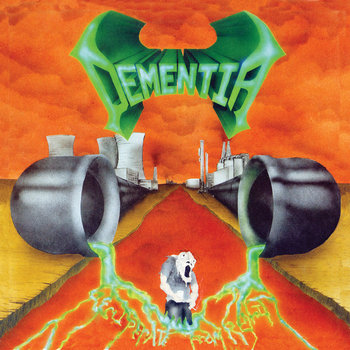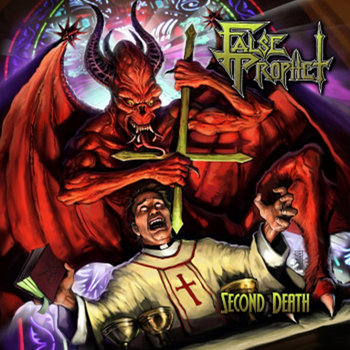Dementia Recuperate From Reality Download
Psychosis is characterized by an impaired relationship with reality. It’s a symptom of serious. People who are experiencing psychosis may have either hallucinations or delusions.are sensory experiences that occur within the absence of an actual stimulus. For example, a person having an auditory hallucination may hear their mother yelling at them when their mother isn’t around. Or someone having a visual hallucination may see something, like a person in front of them, who isn’t actually there.The person experiencing psychosis may also have thoughts that are contrary to actual evidence.
- Dementia Recuperate From Reality Download Free
- Dementia Recuperate From Reality Download Free
- Dementia Recuperate From Reality Downloading
These thoughts are known as delusions. Some people with psychosis may also experience loss of motivation and social withdrawal.These experiences can be frightening.
Recuperate from Reality by DEMENTIA, released 05 May 2017 1. State of Dementia 2. Sight Unseen 3. Terminal Ecstasy 4. Funeral March 5. Face to Fate 6. Born to Die 8. Feel the Fire 9. Say Your Prayers 10. Blood Loss 11. Inner Thoughts (Misery) DEMENTIA was formed in Wisconsin in the late 1980s by guitarist Brian Ericson, vocalist Mike Walz, and drummer Skylar Kennedy.
They may also cause people who are experiencing psychosis to hurt themselves or others. It’s important to see a doctor right away if you or someone you know is experiencing symptoms of psychosis. Delusions and hallucinations are two very different symptoms that are both often experienced by people with psychosis.

Delusions and hallucinations seem real to the person who is experiencing them. DelusionsA delusion is a false belief or impression that is firmly held even though it’s contradicted by reality and what is commonly considered true. There are delusions of, and somatic delusions.People who are experiencing a delusion of paranoia might think that they are being followed when they aren’t or that secret messages are being sent to them. Someone with a grandiose delusion will have an exaggerated sense of importance. Somatic delusion is when a person believes they have a terminal illness, but in reality they’re healthy.
HallucinationsA hallucination is a sensory perception in the absence of outside stimuli. That means seeing, hearing, feeling, or smelling something that isn’t present. A person who is hallucinating might see things that don’t exist or hear people talking when they’re alone. Each case of psychosis is different, and the exact cause isn’t always clear.
There are certain illnesses that cause psychosis, however. There are also triggers like drug use, lack of sleep, and other environmental factors. In addition, certain situations can lead to specific types of psychosis developing. IllnessesIllnesses that can cause psychosis include:.
brain diseases such as, and some chromosomal disorders. or cystsSome types of may result in psychosis, such as that caused by:., and other infections that attack the brain. some types of. Some kinds of psychosis are brought on by specific conditions or circumstances that include the following: Brief psychotic disorderBrief psychotic disorder, sometimes called brief reactive psychosis, can occur during periods of extreme personal stress like the death of a family member. Someone experiencing brief reactive psychosis will generally recover in a few days to a few weeks, depending on the source of the stress.
Drug- or alcohol-related psychosisPsychosis can be triggered by the use of alcohol or drugs, including stimulants such as methamphetamine. Hallucinogenic drugs like LSD often cause users to see things that aren’t really there, but this effect is temporary.
Some prescription drugs like steroids and stimulants can also cause symptoms of psychosis.People who have an addition to alcohol or certain drugs can experience psychotic symptoms if they suddenly stop drinking or taking those drugs. Organic psychosisA or an illness or infection that affects the brain can cause symptoms of psychosis. Psychotic disorders can be triggered by, drug or alcohol use, injury, or illness.
They can also appear on their own. The following types of disorders may have psychotic symptoms: Bipolar disorderWhen someone has, their moods swing from very high to very low. When their mood is high and positive, they may have symptoms of psychosis. They may feel extremely good and believe they have special powers.When their mood is depressed, the individual may have psychotic symptoms that make them feel angry, sad, or frightened. These symptoms include thinking someone is trying to harm them. Delusional disorderA person experiencing delusional disorder strongly believes in things that aren’t real.

Dementia Recuperate From Reality Download Free
Psychotic depressionThis is with psychotic symptoms. Schizophreniais a lifelong disease that is generally accompanied by psychotic symptoms. Psychosis is diagnosed through a. That means a doctor will watch the person’s behavior and ask questions about what they’re experiencing. Medical tests and X-rays may be used to determine whether there is an underlying illness causing the symptoms. Diagnosing psychosis in children and teenagersMany of the symptoms of psychosis in adults aren’t symptoms of psychosis in young people. For example, small children often have imaginary friends with whom they talk.
Dementia Recuperate From Reality Download Free
This just represents imaginative play, which is completely normal for children.But if you’re worried about psychosis in a child or adolescent, describe their behavior to a doctor. Treating psychosis may involve a combination of medications and therapy. Most people will experience an improvement in their symptoms with treatment.
Dementia Recuperate From Reality Downloading

Rapid tranquilizationSometimes people experiencing psychosis can become agitated and be at risk of hurting themselves or others. In these cases, it may be necessary to calm them down quickly. This method is called rapid tranquilization.
A doctor or emergency response personnel will administer a fast-acting injection or liquid medicine to quickly relax the patient. MedicationSymptoms of psychosis can be controlled with medications called antipsychotics. They reduce hallucinations and delusions and help people think more clearly. The type of antipsychotic that is prescribed will depend on the symptoms.In many cases, people only need to take antipsychotics for a short time to get their symptoms under control. People with schizophrenia may have to stay on medications for life. Cognitive behavioral therapymeans meeting regularly to talk with a mental health counselor with the goal of changing thinking and behaviors. This approach has been shown to be effective in helping people make permanent changes and better manage their illness.
It’s often most helpful for psychotic symptoms that don’t completely resolve with medications.